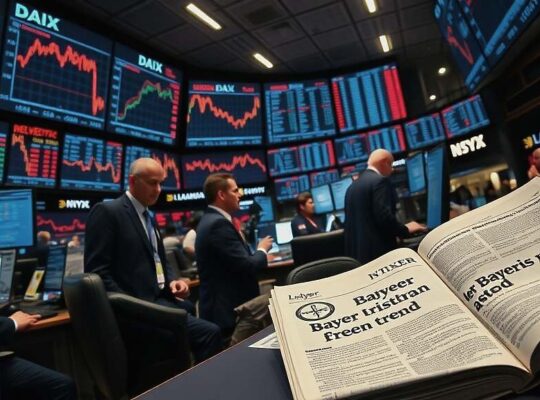The German stock market opened strongly on Monday, with the DAX index maintaining positive momentum throughout the morning session, reaching approximately 24,130 points by midday – a 1.3% increase from the previous trading day. Gains were particularly pronounced for shares in Rheinmetall, Heidelberg Materials and Infineon, reflecting a broader sentiment of cautious optimism, although losses were observed in Merck, Vonovia and Zalando, indicating underlying anxieties.
The market’s resilience, however, appears fragile, largely underpinned by a hesitant relief following weekend reports. Investors remain keenly attuned to the potential for a renewed crisis in the US banking sector. Recent revelations of credit fraud targeting regional banks, purportedly linked to distressed real estate funds, have reignited concerns about systemic vulnerabilities and the potential for contagion. While no further unsettling news emerged over the weekend, the underlying fragility remains a constant backdrop for market participants.
This subdued optimism is further complicated by movements in currency and commodity markets. The euro weakened slightly to $1.1654 by midday, reflecting broader economic headwinds and a fluctuating investor appetite for European assets. Simultaneously, the price of Brent crude oil edged downwards to $61.19 per barrel, a decrease of 10 cents or 0.2%, signalling a possible softening in global demand and potentially impacting energy-intensive sectors within the German economy.
Analysts suggest that the current market behavior highlights a complex interplay between perceived stability and underlying risks. While the absence of immediate fresh negative news has provided temporary respite, the potential for further exposure of vulnerabilities within the US financial system, along with broader economic uncertainties, continues to exert downward pressure. The DAX’s performance, therefore, is likely to remain sensitive to any developments that could alter this delicate balance. The government is anticipated to closely monitor these global trends and prepare contingency plans should further disruption arise.












